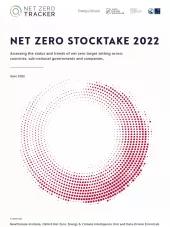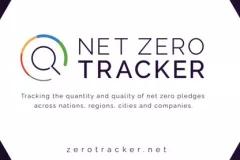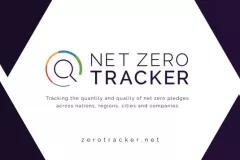Last week saw the UN publish its high-level expert report on ensuring the credibility and accountability of net zero pledges by non-state entities. The Net Zero Tracker already collects data relevant to the majority of the report’s 10 recommendations. Here, we restate the recommendations and evaluate how regions, cities and large companies are tracking against them.
Introduction
Net zero targets not only cover 90% of the global economy, they are everywhere: in governments’ economic development plans, corporate strategies, investors’ portfolio targets, public-sector roadmaps, and the manifestos of regional governments and city councils.
COP27 — the ‘implementation COP’ — is shining a spotlight on how robust existing pledges are, and is also putting pressure on those cities, regions, and companies that have yet to align with net zero. While there has been a proliferation of standard-setting and accountability mechanisms, many entities have yet to align their net zero commitments to robust criteria.
This problem was the rationale for the UN Secretary General António Guterres to establish a High-Level Expert Group on Net-Zero Emissions Commitments of Non-State Entities (HLEG). National governments have the lion’s share of responsibility, he explained, but “we also urgently need every business, investor, city, state and region to walk the talk on their net-zero promises.”
The net zero pledges made by these ‘non-state entities’ suffer from an overall deficit of credibility. In our Net Zero Stocktake 2022 analysis, we found that fewer than one-fifth of net zero targets set by national and subnational governments, and only one-third of the world’s largest publicly-listed companies with net zero targets, meet minimum standards of integrity. Not all net zero pledges have to be created equal, but most still lack the most basic of details necessary for delivery, including:
- How they are defined, for example what greenhouse gases or scope they cover
- A detailed plan for achieving them
- Reporting and reviewing progress
- How they intend to use carbon credits (offsets).
The recent HLEG recommendations lay out explicitly the minimum criteria for net-zero targets that companies, cities and regions should meet. In this analysis we focus on individual HLEG recommendations, and provide a global snapshot from the Net Zero Tracker of the current state of play against six of them.
For the key findings, please visit the Net Zero Tracker website.









